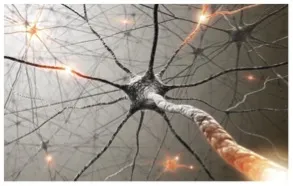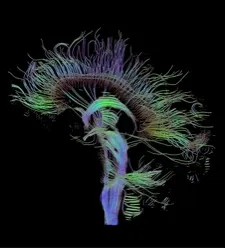FAQs
Graduate Student FAQs
Image


You can find answers here to the most common questions future Grad Students have. If your require more information contact the Department of Neuroscience/CCBN, visit us in EP1252, Exploration Place or contact the School of Graduate Studies.
When are the application deadlines?
Where are the application forms?
What supporting documents are required?
How do I find a supervisor and do I need one?
What other degree(s) and GPA are required for the MSc or PhD program?
What if my GPA isn’t high enough?
What funding is available?
How much is tuition?
When will I be notified if I have been accepted into Graduate Studies?
When are the application deadlines?
- Spring Semester - October 1
- Fall Semester - Feb 1 (1st round)
- Fall Semester - May 1 (2nd round)
- Summer Semester - Feb 1
Where are the application forms?
The application forms are on the School of Graduate Studies web page.
Master of Science (MSc)
Doctor of Philosophy (PhD)
You must have a SUPERVISOR before you can apply (see below for more information on how to find a supervisor).
What supporting documents are required?
- Application Form
- Official Academic Transcripts (sent directly from issuing institution to Student Enrolment and Registrar Services)
- Three Letters of Recommendation (academic and/or researcher reference speaking to the applicant's ability and aptitude for graduate studies)
- Student's C.V. (include academic background, work experience, awards, scholarships, and publications)
- The Program Committee requires the submission of a one page Letter of Intent, indicating in general terms, the reasons, goals or objectives for seeking a graduate degree
- To ensure success in academic study, all applicants, regardless of citizenship or country of origin, must meet the English Language Proficiency
requirement through recognized study or a valid standardized test score.
- Master of Science Application Procedures
- PhD Application Procedures
- PhD Application Procedure for transfer from a master degree program
If your application is not complete, you will not be considered for admission to Graduate Studies.
All applicants whose first language is not English must meet the English Language Proficiency (ELP) Requirement for Graduate Studies (see English Language Proficiency for Graduate Students).
PhD students should check the Doctor of Philosophy page, as some of the admission requirements are different than for an MSc.
How do I find a supervisor and do I need one?

Your supervisor is the key person in your graduate degree program. The principal role of the supervisor is to help students achieve their scholastic potential and to chair the student’s Supervisory Committee. The Supervisor will provide reasonable commitment, accessibility, professionalism, stimulation, guidance, respect and consistent encouragement to the student.
Supervisors should be available to help their graduate students at every stage, from formulation of their research projects through establishing methodologies and discussing results, to presentation and possible publication of dissertations. Graduate supervisors must also ensure that their students’ work meets the standards of the University and the academic discipline.
The School of Graduate Studies webpage has detailed information on how to find a supervisor.
You can also find a supervisor that does research in the area that you want to study on the Department of Neuroscience Research page or see the list below.
Faculty Supervisors:
What other degree(s) and GPA (Grade Point Average) are required for the MSc or PhD program?
MSc
A University of Lethbridge baccalaureate degree or its equivalent form another recognized degree-granting institution, in the discipline of interest or in a closely related cognate discipline. The U of L reserves the right to determine whether degrees and other academic programs completed elsewhere are equivalent.
A minimum GPA of 3.00 (based on a 4.00 scale) on the last 20 graded university-level semester courses of a BSc degree.
Full details are available here.
PhD
Master of Science degree awarded from a recognized institution.
Minimum grade point average of 3.5 (based on a 4.00 scale) on all graded master’s-level courses.
Full details are available here.
What if my GPA isn’t high enough?
Contact the School of Graduate Studies for specific advice. They will review your information and recommend the best way to either improve your GPA or to apply for the Second Degree Program.
You can apply to the U of L for the Second Degree Program, which is a minimum of 20 courses, but may be as many as 35, depending on the major.
Applicants whose first language is not English must meet the English Language Proficiency (ELP) Requirement for Graduate Studies (see English Language Proficiency for Graduate Students).
MSc Financial Assistance Information
PhD Financial Assistance Package
Tuition varies from semester to semester and if you are an International student. See the following page for complete details.
When will I be notified if I have been accepted into Graduate Studies?
The Dean of the School of Graduate Studies informs the applicant of the Program Committee’s decision. Applicants and their faculty supervisors will be notified of admission status by May 1, July 1, or December 1. Successful applicants will be advised of registration procedures at that time.
Applicants may also be called for an interview with the Program Committee.
